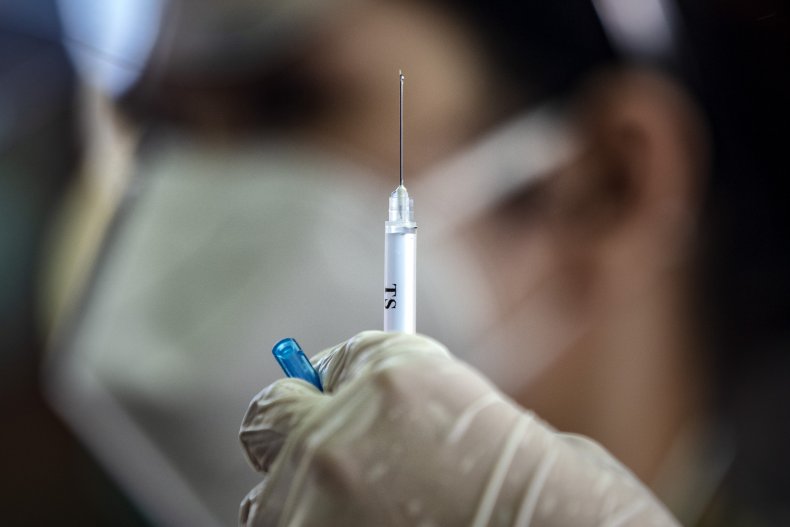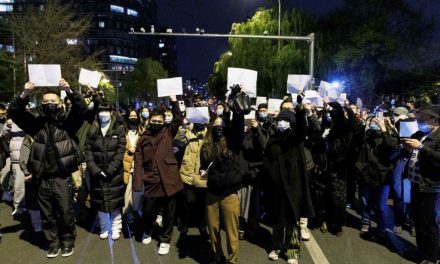By JIANLI YANG
The phrase “Made in China” has a generally negative reputation due to the poor quality of products made in the country.
Towing a similar line, Chinese vaccines against COVID-19 are proving ineffective.
No one thought that the inferior quality of Chinese vaccines would end people’s lives.
Indonesian nurse Erny Kusuma Sukma Dewi died soon after she was given a dose of Beijing-based Sinovac Biotech’s CoronaVac vaccine.
According to the National Union of Indonesian Nurses, 33-year-old Dewi contracted COVID-19 soon after she took a Chinese vaccine. Following fever, difficulty breathing and coughing she died.
Earlier this year, a Peruvian volunteer who took a trial of a Chinese vaccine died from COVID-19-related pneumonia. In December 2020, Peru’s government suspended Sinopharm’s COVID-19 vaccine because of a “serious adverse event” that occurred with a volunteer.
Brazil too reported a death due to China’s Sinovac’s vaccine, leading to the suspension of trials.
In January, Chinese vaccine expert Tao Lina ringed the alarm on popular social networking site Weibo about Sinopharm’s vaccine being the “most unsafe in the world” with 73 side effects.
Pain around the injection area, headache, high blood pressure, loss of vision, loss of taste and incontinence are among the adverse reactions outlined. As expected, Tao was silenced by Chinese authorities and his Weibo account was deleted.
Countries diplomatically close to China such as Turkey and Indonesia have been pushing hard to conduct vaccination programs using Chinese coronavirus vaccines. People in these countries, however, are not optimistic.
Sinovac dominates the supply of vaccines to Indonesia, where many are hesitant to get vaccinated due to concerns over safety and the efficacy of the jabs, according to a survey by Saiful Mujani Research and Consulting.
“Since many countries are planning to order, or have already ordered Sinovac’s vaccines, it might undermine people’s willingness to take them, because people may question the usefulness of the vaccines. It could be a potential stumbling block,” Yanzhong Huang, a senior fellow at the Council on Foreign Relations, told CNN.
In Hong Kong, China’s own backyard, people expressed doubts over the usefulness of Chinese vaccines.

“I don’t think I’ll get the vaccine for the time being. I’ll take a wait-and-see approach. I would like to see if others experience any side-effects after the injection. I’ll only consider the vaccine only when I’m sure that it has a high efficacy rate and no side-effect,” said Ken Cheung, a Hong Kong resident.
According to a survey conducted by the University of Hong Kong, about 61 percent of people do not want to take vaccines made by China. The safety and efficacy issues with Chinese vaccines seem to be the main reason people are reluctant to get a shot.
Sri Lanka decided to bank on the Oxford/AstraZeneca coronavirus vaccine gifted by India to treat COVID-19 patients, while planning to dump Chinese vaccines. Singapore too received a batch of Chinese manufactured Sinovac vaccines but it has not approved them due to doubts over its effectiveness.
Singapore’s Health Ministry said it was “awaiting Sinovac’s submission of all the necessary information in order to carry out a thorough scientific assessment of the manufacturing process, safety and efficacy of the vaccine under the Pandemic Special Access Route.”
A survey conducted by the polling company YouGov showed that people across the world are interested in taking a COVID-19 vaccine but would be more distrustful of shots made in China or Russia.
“According to our experts, Sinovac’s vaccine is not the best vaccine [for medical workers],” said Rolando Enrique Domingo, director of the Philippines Food and Drug Administration.
It may be interesting but not surprising that Chinese officials share similar sentiments. Chinese officials know better than anyone else about the quality and efficacy of China’s vaccines, many of which were approved by China’s health authorities and touted and sold in many countries as part of their vaccine diplomacy and export-enhancing strategies. It remains a secret whether leaders in China were vaccinated, and if so, knowing what vaccine they took.
Last December, as the Chinese government boasted China’s qualitative and quantitative leadership in developing vaccines, Shanghai Fosun Pharmaceutical Group Co Ltd announced it would buy at least 100 million doses of a COVID-19 vaccine from Germany’s BioNTech SE to use in mainland China.
There has been no news about the approval, arrival or use of the BioNTech SE vaccine in China.
Many Chinese question why China, with its own multiple “qualified vaccines in abundant supply” would import foreign made vaccines. There is speculation that the German vaccines may have been specifically planned to be administered to Chinese officials and their families.
About 5,000 people from China’s political elite recently gathered in Beijing for the annual National People’s Congress and National Political Consultative Conference. Authorities announced before commencement that the delegates were all vaccinated but stopped short of divulging which vaccines were taken.
Dr. Jianli Yang is founder and president of Citizen Power Initiatives for China.
The views expressed in this article are the writer’s own.
This article first appeared in Newsweek on 3/12/21






















